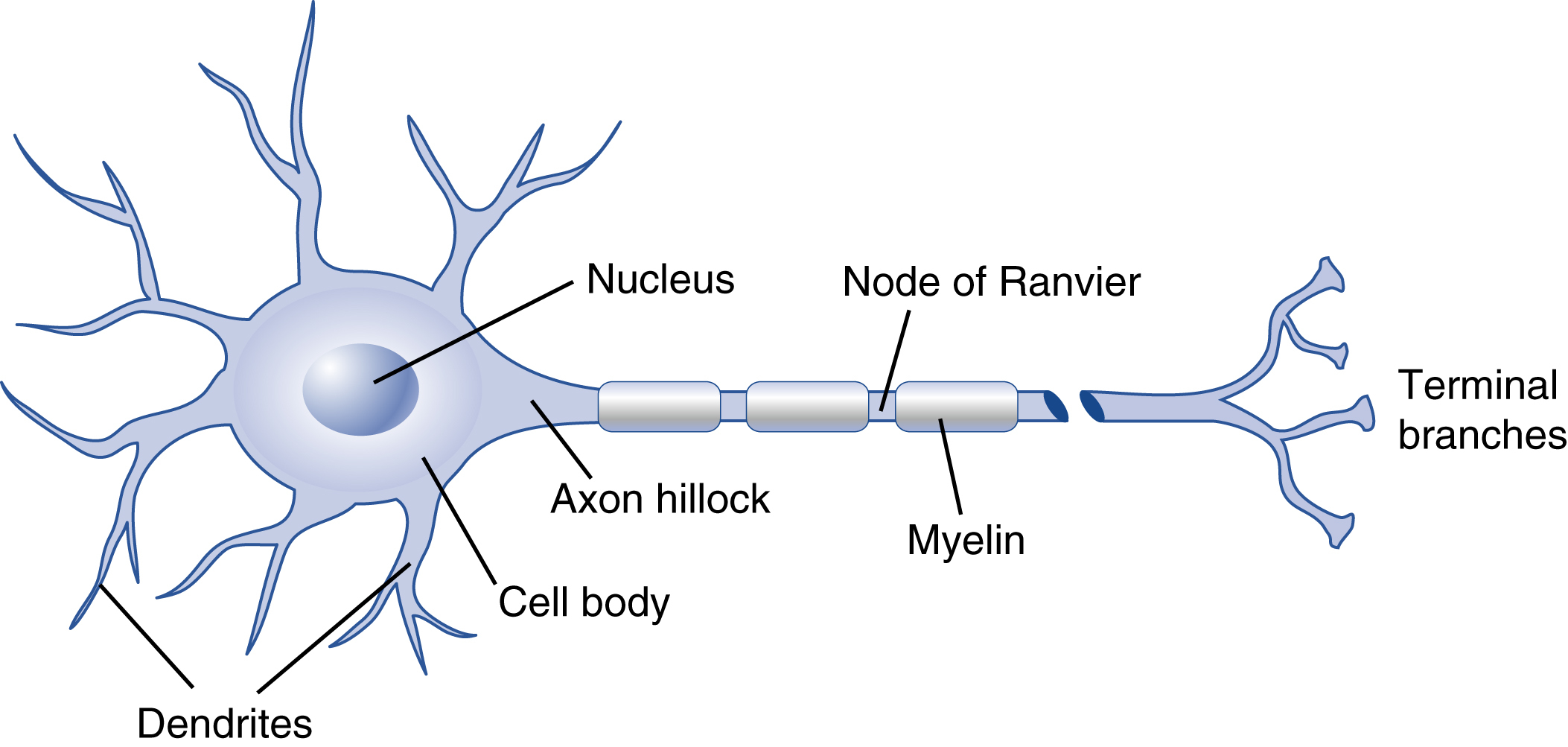neuron /no͝or″on/ [Gk, nerve] , the basic nerve cell of the nervous system, containing a nucleus within a cell body and extending one or more processes. Neurons can be classified according to the direction in which they conduct impulses or according to the number of processes they extend. Sensory neurons transmit nerve impulses toward the spinal cord and the brain. Motor neurons transmit nerve impulses from the brain and the spinal cord to the muscles and the glandular tissue. Multipolar neurons, bipolar neurons, and unipolar neurons are classified according to the number of processes they extend to the different kinds of neurons. Multipolar neurons have one axon and several dendrites, as do most of the neurons in the brain and the spinal cord. Bipolar neurons, which are less numerous than the other types, have one axon and only one dendrite. Unipolar neurons have one axon and no dendrites. All primary sensory afferents and some autonomic neurons are unipolar. All neurons have one axon, and most have one or more dendrites and have a slightly gray color when clustered, as in the nuclei of the brain and the spinal cord. As the generators and carriers of nerve impulses, neurons function according to electrochemical processes involving positively charged sodium and potassium ions and the changing electrical potential of the extracellular and the intracellular fluid of the neuron. Also spelled neurone. −neuronal, adj.

